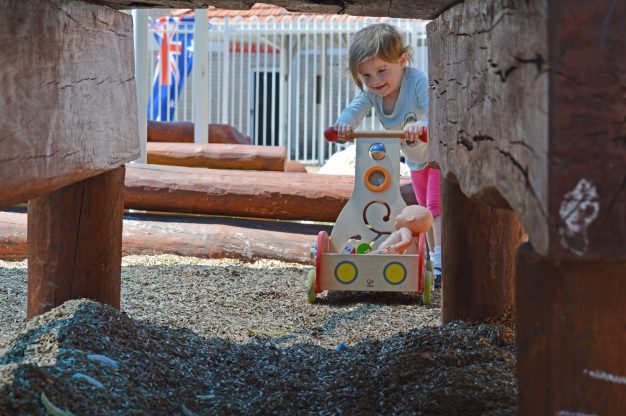
Report calls for children’s voices to be included in Australian government urban design policy
Children’s voices are missing from policies which shape the design of Australian cities.
A recent policy review by the Built Environments and Child Health in Wales and Australia (BEACHES) project – a joint initiative led by the Telethon Kids Institute, The University of Western Australia and Swansea University in Wales – examined how Western Australian and national policies address the health of children through the built environment’s influence on physical activity, sedentary behaviour, and diet.
Policy documents developed by various government departments were examined, including those in charge of planning, health, transport, sport and recreation, local government, crime prevention, and parks and wildlife.
The review found that very few policy documents recognised the specific needs of children through the built environment, writes Associate Professor Hayley Christian from the Telethon Kids Institute in Australia.
Writing exclusively for Child in the City, Professor Christian says built environments have the capacity to either support or hinder children’s active transport, structured and unstructured physical activity, and healthy eating behaviours.
Future policy development must include children’s voices and child-specific built environment features if there is to be any chance of reducing childhood obesity, physical inactivity and sedentary behaviour.
There is a perception that Australian kids are physically active enough, but this isn’t the case for most kids. Nine out of ten Australian adolescents aren’t doing enough physical activity, and only one in five children in Perth walk or cycle to school. Similarly, only a third of children aged 2–5 years meet recommended guidelines of three hours of physical activity per day.
A key aim of the BEACHES project is to provide evidence about how built environments contribute to low rates of physical activity and associated health problems – and, equally, how more thoughtful, child-friendly planning could help to turn these statistics around.
Further information is available from the BEACHES Project.
Associate Professor Hayley Christian is an experienced health promotion researcher and practitioner. To help people enjoy good health and wellbeing throughout their lives, Professor Christian’s research focuses on improving children’s physical activity, health and wellbeing through multi-level interventions focused on the child, the family, and social and built environments.
To make an impact on a wider scale, Professor Christian and her team work closely with government, non-government organisations, professional bodies and the private sector to identify and implement programs and policies to help children establish healthy behaviours early to provide the foundation for lifelong health. Professor Christian is a Principal Senior Research Fellow and National Heart Foundation Future Leader Fellow at the Telethon Kids Institute, The University of Western Australia.
The BEACHES Project is funded by UK Research and Innovation and the Australian National Health and Medical Research Council.



